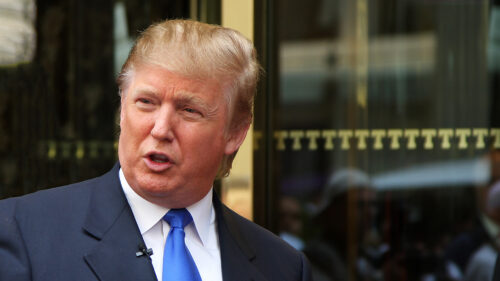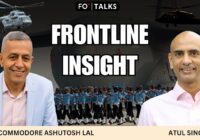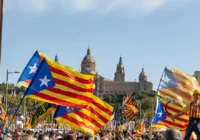The historic victory of Romania’s president-elect, the pro-European centrist Nicușor Dan, shows the limits of the MAGA (Make America Great Again) project in Eastern Europe. His opponent, right-wing candidate George Simion, openly aligned himself with US President Donald Trump’s political movement but failed to win. Although he qualified for the runoff from first place, taking double the number of votes of the runner-up, Simion lost the election by 7% behind Dan.
National discontent and competing narratives.
Simion spent the final two weeks of the campaign trying to position himself as a protégé of the MAGA movement. Instead of debating his opponent, he toured Europe — visiting France, Poland, Italy and the United Kingdom—in an effort to secure endorsements from European conservatives. However, these endorsements were slim: Even Hungarian Prime Minister Viktor Orbán withdrew his initial public support for Simion after hearing of his internal anti-Hungarian rhetoric.
Simion also relied on the new media exposure provided by the international MAGA movement, frequently appearing on podcasts by MAGA influencers like Steve Bannon. He also framed his candidacy and that of one of the far-right presidential candidates in Poland, supported by Trump, Pawel Narowcki, as the “winning MAGA ticket for Eastern Europe.”
The recent rise in popularity of the Romanian far-right movement, of which Simion is an exponent, has its national particularities, especially those concerning extreme poverty. Romania has the highest percentage of people at risk of social exclusion and poverty in the European Union. In addition to the favorable domestic context, Simion’s candidacy came against a favorable international backdrop, as he speculated Romania’s historical pro-Americanism and well-known strategic dependence on the US security umbrella to raise his profile as a MAGA export candidate.
This is hardly the first time that a Romanian presidential candidate has tried to offset his lack of domestic support by portraying himself as a candidate supported by the “Americans”. To brand himself as such, Simion went as far as adopting confrontational rhetoric similar to that associated with Trump’s political style and even claiming a threat of assassination by the establishment.
In contrast, Dan focused on policy over confrontation. He participated in every debate to present his “Honest Romania” program and drew endorsements from pro-European civil society, academics and anti-communist dissidents. These supporters warned that a Simion victory would push Romania back toward the isolationism of its totalitarian past. The runoff became a contest between two starkly different visions: one rooted in European integration, the other leaning toward alignment with Eastern autocracies.
Foreign policy stakes and governance challenges.
Nicușor Dan, now the Romanian president-elect, is a mathematician educated at the Sorbonne and an active member of civil society organizations. He was elected Mayor of Bucharest in 2020. He ran as an independent for the presidency of Romania in 2025. Dan was one of the few candidates who had unequivocally advocated that it is in Romania’s national interest to support Ukraine in the face of Russian aggression, until a sustainable and just peace is achieved. Dan was also the only candidate who stated that if Russia were to attack Moldova, he would swiftly call on NATO allies for support.
In the evening of his historic victory, Dan specified that security, alongside the modernization of the economy, will be a priority of his mandate and pledged to raise defense sector spending to a minimum of 3.5% of the country’s GDP. The president-elect mentioned that his first visits abroad will be in Chișinău, Brussels, and Washington. During the electoral campaign, he too attracted the public endorsement of EU leaders, including the Prime Minister of Poland, Donald Tusk, and French President Emmanuel Macron.
The new president faces a difficult mandate, starting with Romania’s substantial deficit. Dan must also oversee the formation of a new government, as the current one remains interim. He will lead the appointment of new Constitutional Court judges and heads of the intelligence services. As president, he holds a central role in shaping foreign and security policy, including the implementation of Romania’s new defense strategy.
The most difficult file to be solved by Dan, however, remains repairing the relationship with the United States, given that Romania has drawn criticism from the Trump administration after the annulment of the November 2024 presidential elections amid allegations of foreign meddling. The United States remains Romania’s most vital security partner. However, bilateral relations have deteriorated in recent months, culminating in the decision not to welcome Romania into the Visa Waiver Program (VWP), which allows citizens of certain countries to travel to the US for stays of up to 90 days without a visa, despite the Biden administration’s confirmation that Bucharest has met all the technical criteria to join the program.
A setback for MAGA in Eastern Europe?
With Simion’s loss and Dan’s historic win, the election results suggest that efforts to expand the influence of the MAGA movement faced limitations in Romania. This region is profoundly dependent on America’s security umbrella. Although pro-American at heart, the Romanians rejected this far-right ideological framework, demonstrating that even acknowledging dependency on the United States has its limits.
The Polish elections scheduled for June 1 will further indicate the scope of this ideological battle across Eastern Europe. Until then, however, Dan’s victory in Romania could be interpreted as support for deeper European integration and coordination on foreign policy.
[Nicolette Cavallaro edited this piece.]
The views expressed in this article are the author’s own and do not necessarily reflect Fair Observer’s editorial policy.
Support Fair Observer
We rely on your support for our independence, diversity and quality.
For more than 10 years, Fair Observer has been free, fair and independent. No billionaire owns us, no advertisers control us. We are a reader-supported nonprofit. Unlike many other publications, we keep our content free for readers regardless of where they live or whether they can afford to pay. We have no paywalls and no ads.
In the post-truth era of fake news, echo chambers and filter bubbles, we publish a plurality of perspectives from around the world. Anyone can publish with us, but everyone goes through a rigorous editorial process. So, you get fact-checked, well-reasoned content instead of noise.
We publish 3,000+ voices from 90+ countries. We also conduct education and training programs
on subjects ranging from digital media and journalism to writing and critical thinking. This
doesn’t come cheap. Servers, editors, trainers and web developers cost
money.
Please consider supporting us on a regular basis as a recurring donor or a
sustaining member.
Will you support FO’s journalism?
We rely on your support for our independence, diversity and quality.











Comment
The rise of far right parties across Europe is a major trend. It reflects widespread mistrust of the ruling elite in most of the countries and exasperation with the deeply undemocratic technocracy we call the European Union. This account of the May election is accurate, but the Romanian case is much more complex than seeing it as a reaction to MAGA, as the arbitrarily cancelled presidential election just a few months ago demonstrates. Democracy in Europe has become something of a farce.
“Romania has the highest percentage of people at risk of social exclusion and poverty in the European Union.” Given this fact, would increased spending on defense sow the seeds for a different kind of populism in the future?